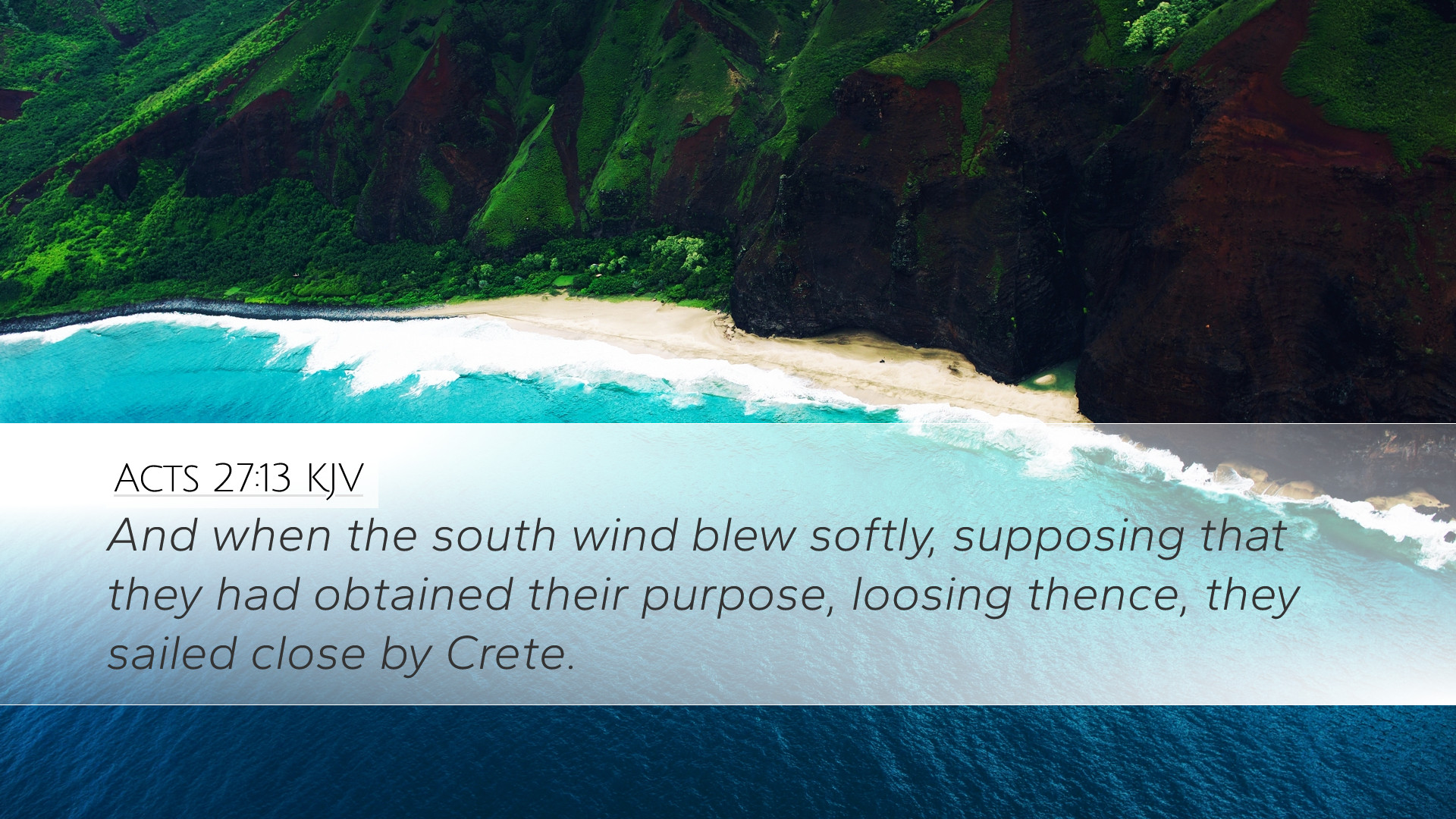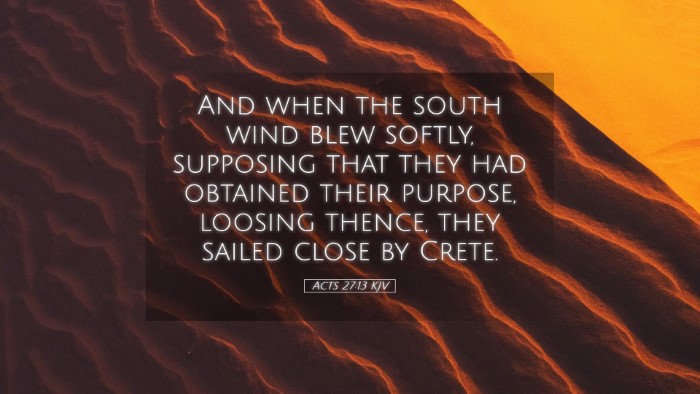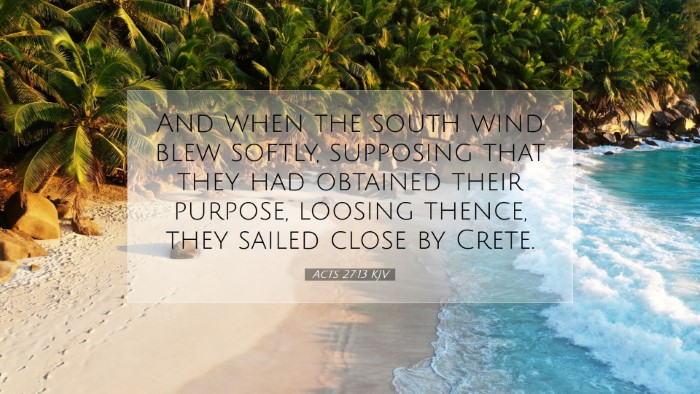Commentary on Acts 27:13
Verse: "And when the south wind blew softly, supposing that they had obtained their purpose, losing hence, they sailed close by Crete."
Introduction
Acts 27:13 describes a pivotal moment in Paul's journey to Rome as a prisoner. The passage demonstrates the navigational decisions made by the crew based on favorable winds, reflecting both human reasoning and divine providence.
Contextual Background
The trip to Rome is not merely a journey for Paul but a significant event laden with spiritual implications. He is a prisoner, yet he has been promised by God that he will testify before Caesar, which creates a backdrop of divine assurance amid the physical dangers of sea travel.
Historical Significance
The Mediterranean voyages during this era were influenced heavily by weather patterns and maritime knowledge. The south wind mentioned here signifies a period of calmer weather, creating an illusion of safety and success among those aboard.
Commentary Insights
Matthew Henry's Perspective
Matthew Henry emphasizes the irony of the sailors’ confidence in the soft wind. He notes that it signifies a "flatterer" that can lead one away from caution. Henry warns that relying on favorable circumstances can lead to unwise decisions, reflecting human folly in assuming control over events.
Albert Barnes' Observations
Albert Barnes draws attention to the notion of "supposing that they had obtained their purpose." He indicates that while the wind appeared to align with their plans, this was deceptive. There’s a critical distinction between human assumption and divine intention. God's providence is often at work behind the scenes, guiding events despite human inclination to trust in their understanding.
Adam Clarke's Insight
Adam Clarke notes the significance of the strategic decision to sail close by Crete to avoid the dangers of the open sea. He points out that this decision stemmed from a miscalculation of the true nature of the journey ahead. Clarke illustrates the spiritual lesson — that of attempting to navigate life’s decisions by sight and immediate circumstances rather than by faith and divine guidance.
Theological Reflections
This verse serves as a profound reminder of the contrast between human wisdom and God's sovereignty. It highlights a recurrent theme in Scripture where human plans can often conflict with divine purpose.
Divine Providence
The breeze that gave the illusion of a successful voyage also foreshadows the impending storm. Just as God governs the elements in nature, He sovereignly governs the affairs of men. Thus, the verse invites readers to consider how often they rely on transient circumstances rather than on God's enduring promises.
Faith Versus Sight
The decision to embark seems logical based on the conditions — a reminder of humans' tendency to walk by sight rather than faith. The ensuing trials of the journey, culminating in the tempestuous storm, reveal the folly of leaning solely on favorable circumstances.
Application for Today
- Pastors: The passage serves as a reminder to guide congregations to discern God’s will amidst overwhelming circumstances.
- Theologians: An exploration of divine providence can yield beneficial discussions on God's sovereignty versus human agency.
- Students: Reflect on the dilemmas faced in making choices and how they align with God’s purposes.
- Bible Scholars: A deeper study into nautical logistics of the Mediterranean can enrich understanding of the text.
Conclusion
Acts 27:13 encapsulates a moment of false assurance that teaches invaluable lessons about the nature of human plans in relation to divine guidance. As believers navigate through life’s uncertainties, they are reminded of the importance of seeking God’s will over immediate appearances. Thus, the passage unfolds layers of understanding relevant to every aspect of Christian life.


